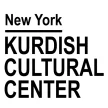Aftermath of Halabja
A few months before the end of the Iran-Iraq War, the Iraqi regime under Saddam Hussain exploited the chaos to attack the Kurdish people behind the scenes. In 1987-88 it carried out the Anfal campaign to murder Kurdish civilians en masse, loot their belongings, and destroy their villages. Saddam named the campaign after a verse in the Quran, in order to make his dirty war against the Kurds seem a holy genocide. Human Rights Watch says 50,000 to 100,000 civilians were killed in 1987 and 1988; Kurdish sources put the figure at 182,000. The Anfal reached its peak on March 16, 1988, when Iraqi jets bombed the Kurdish town of Halabja with a banned chemical weapon. In only a few minutes, more than 5,000 residents lost their lives, and thousands more were injured. The ecosystem was devastated, and most of the living organisms within many miles of the town were killed. Thousands of Kurdish villages and tens of towns simply vanished. The people and environment of Halabja still suffer from the consequences of the attack. The massacre got international attention when the photos and videos of thousands of victims lying on the streets were published. In 2007, the Iraqi Special Tribunal convicted Saddam Hussein and sentenced him to death, partly for the genocide during the Anfal Operation.
 GUEST SPEAKER: QARAMAN HASAN
GUEST SPEAKER: QARAMAN HASAN
Dr. Qaraman Hasan has published on Middle Eastern politics, environmental law, human rights, and climate change. He currently teaches and conducts research at the University of Houston Law Center. He previously supervised research projects at the School of Advanced International Studies at Johns Hopkins University in Washington, D.C. He has lectured at the University of Rojava, the University of Raparin in Başur, and other universities. Dr. Hasan He holds a double master’s degree in international law and international relations from Macquarie University in Sydney, Australia, as well as a PhD in environmental studies from Te Piringa Faculty of Law at the University of Waikato, New Zealand. He is a guest editor for the Business and Human Rights journal at Cambridge University Press. As well as his native Kurdish dialectics, he speaks English, Arabic, and Persian.
 HOST: HEWA S. KHALID
HOST: HEWA S. KHALID
Dr. Hewa S. Khalid is a lecturer in Kurdish studies at Indiana University. His research focuses on Kurdish language, dialects, and Middle Eastern language policies. He has studied and taught in Bakur, Başur, and Rojava (Turksih, Iraqi, and Syrian Kurdistan) as well as the United Kingdom and United States. He is the author of numerous books and journal articles on Kurdish pedagogy, language politics, and ethnic and cultural studies. Most recently, he contribute a chapter on Kurdish language pedagogy in the forthcoming Oxford University Handbook for Kurdish Linguistics. He is currently researching the Kurdish Community in Nashville, Tennessee. He holds a PhD in Kurdish Language and Culture from the Social Sciences Institute at Dicle University, an MA in Kurdish Studies from the Institute of Arab and Islamic Studies at the University of Exeter, and a BA in Kurdish Language and Literature from Koya University in Hêwler (Erbil). He speaks Kurmanci, Sorani, English, and Persian, and he is learning Arabic.
















